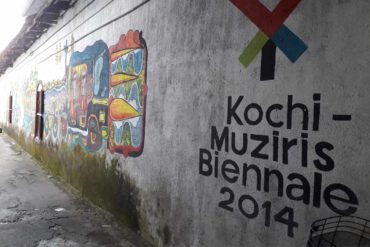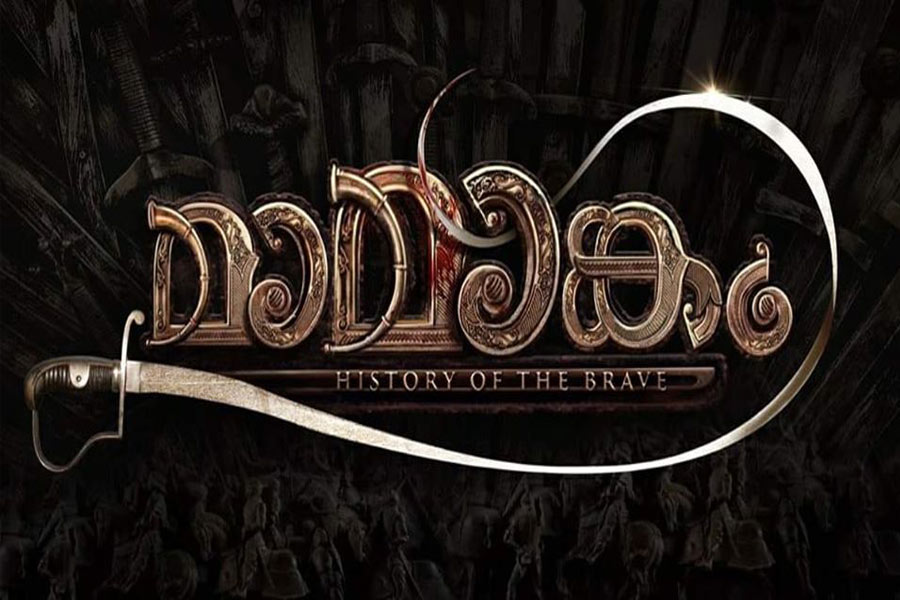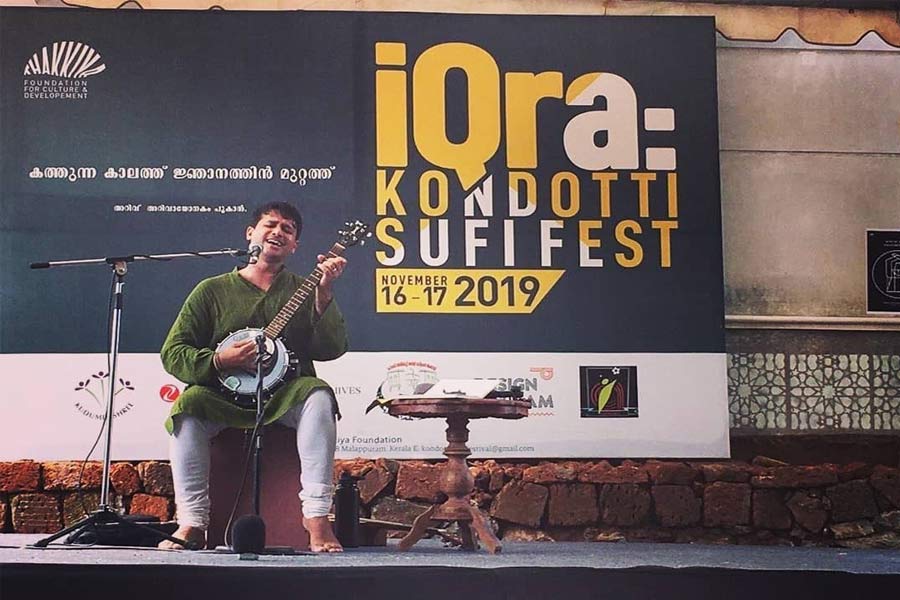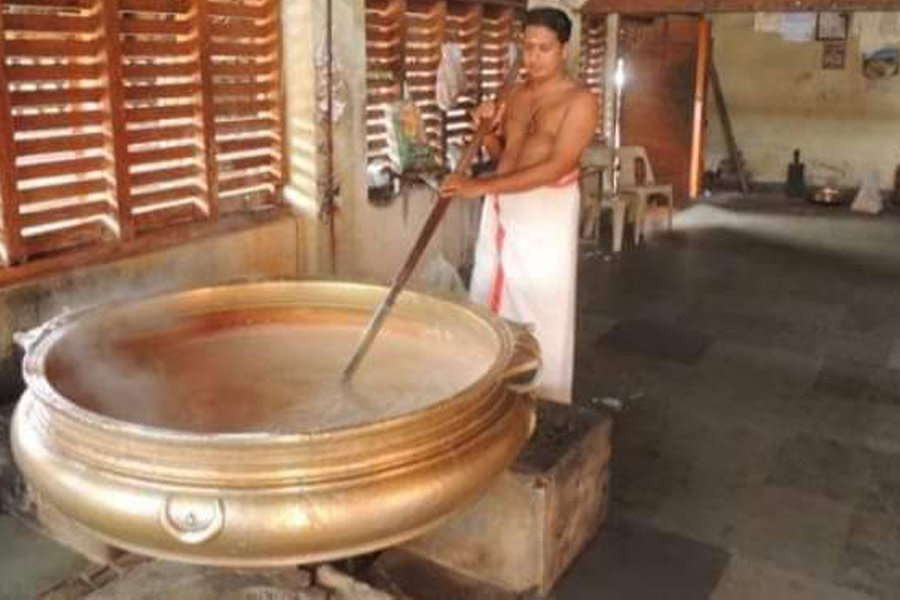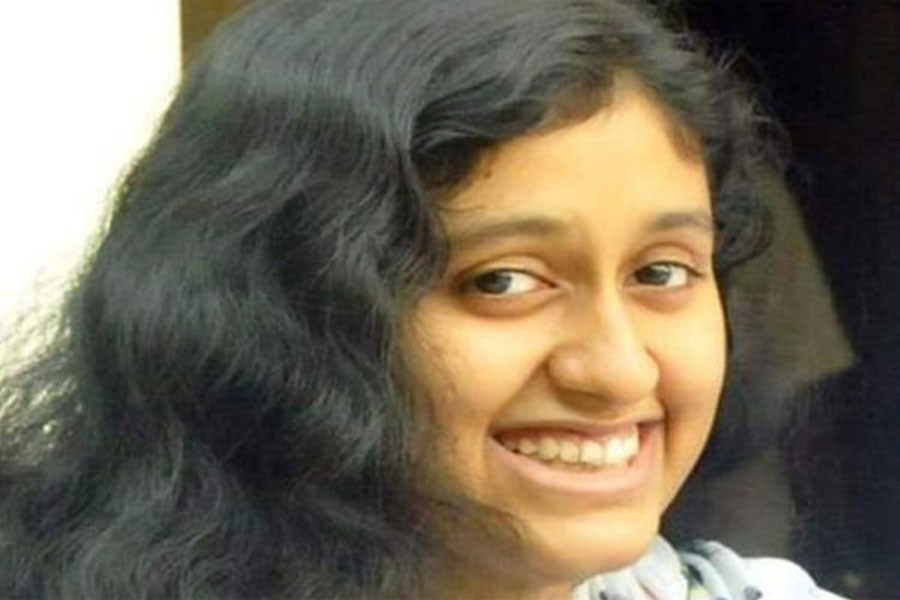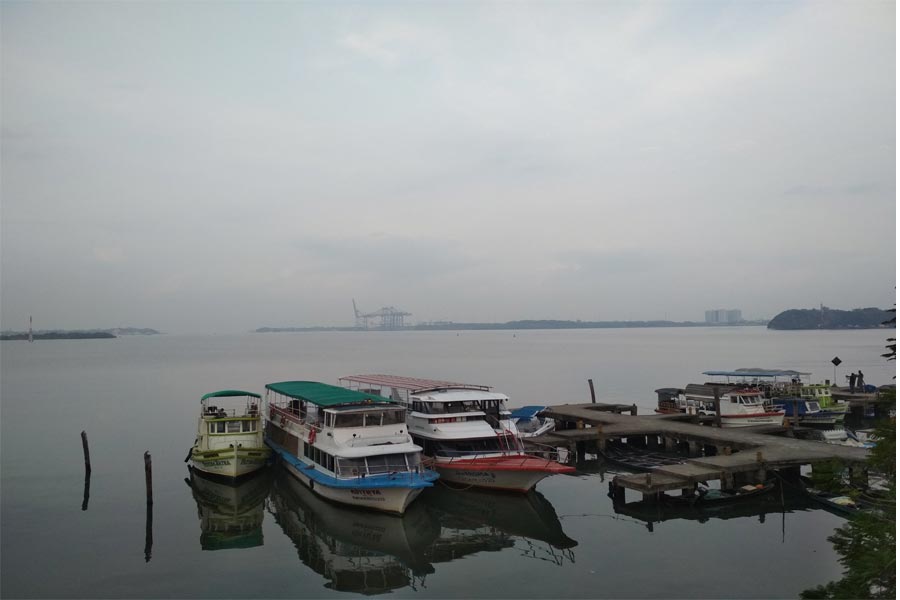“This life is a delegation for me. I am following the path that my ancestors have shown me. The sad part is that the popularity of Mudiyettu is decreasing everyday”. When VN Narayana Kurup popularly known among his colleagues as Nanu Kurup, the head of the Kizhekke Varanattu Mudiyettu Kala Sangham (Sangham), says this, the passion for the art and moreover an anxiety about the existence of the art is evident on his face.
Mudiyettu is a traditional ritual drama presenting the battle between Goddess Kali and Demon Dharika, usually presented in the Kavus’ of Bhadrakali temples in Kerala to appease the Goddess. The literal word meaning of Mudiyettu is ‘Uncrowning of Kali’. It is usually performed during the post-harvest season in Kerala. An exact year of its origin is yet to be marked.
Based in the cultural capital of Kerala, Thrissur, the Sangham is the only UNESCO approved Mudiyettu organisation in Kerala. It was in 2010, UNESCO had given a place for Mudiyettu in its list of ‘Intangible Cultural Heritage of Humanity’ and is the second art form from Kerala to find a mention in the list after Koodiyattam. The nodal agency of UNESCO in India, The National Academy for Music, Dance and Drama in 2013, designated the Sangham with the responsibility of promoting and spreading the art across the nation. Soon after that, the organisation began its work to endorse the endangered art form and to make its presence felt in the modern era.
Today about 20 students attend the organisation’s ‘Kalari’ (floor) to learn this art. “One thing that I insist is that, they (students) should follow the rules of this Kalari. It might be difficult but here we follow the traditional Guru Kula system. Students don’t have to live here. But they should have a strict time table for their life once they join here”, says Narayana Kurup who teaches this art form without taking a single penny as fee.
The organisation’s Mudiyettu team has 16 permanent artists which include Narayana Kurup’s two sons- Ramesh Kurup and Suresh Kurup. The team has already performed Mudiyettu as a campaign in various organisations, schools and cultural institutions. The team also had a chance to represent Kerala in a program conducted by UNESCO at Delhi. The event witnessed the display of other art forms which are included in the list of ‘Intangible Cultural Heritage of Humanity’.
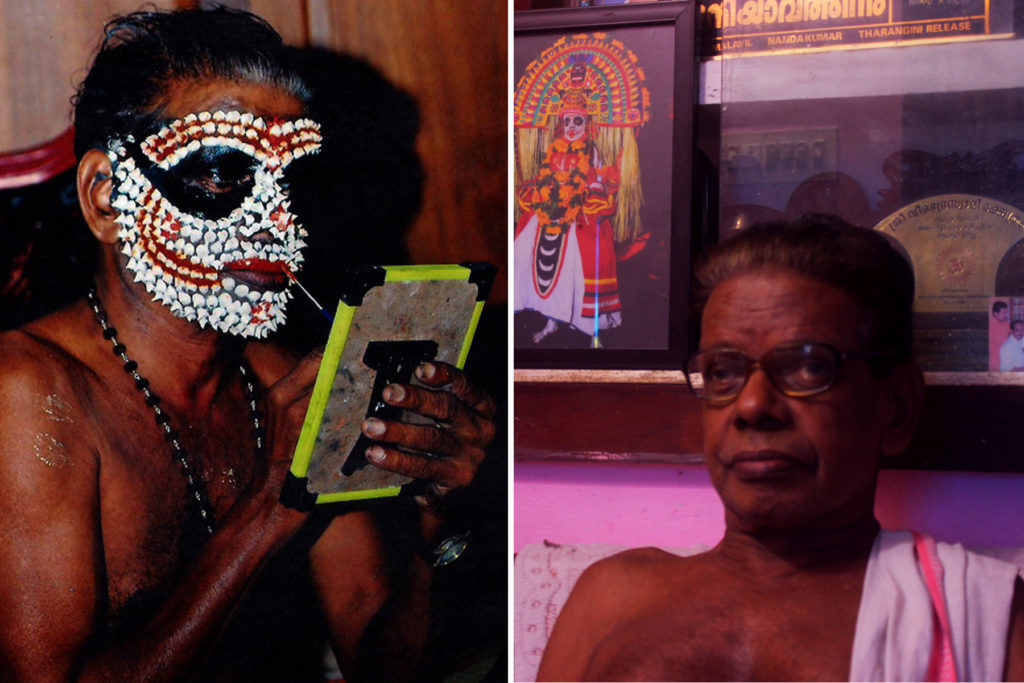
Narayana Kurup was born into a family where Kalamezhuthu (powder drawing done on floor) and Mudiyettu were practised as a tradition. At the age of 12, Narayana Kuruppu started his journey in Mudiyettu under the guidance of his uncle, Shankaran Rama Kurup, who was a tall figure in this field. At the age of 13, he began to perform supporting roles in Mudiyettu and when he turned 16, he gave life to the central character in Mudiyettu, Goddess Kali.
Narayana Kurup is anxious about preserving the art form and promoting it among today’s generation. He performs Mudiyettu across the state in more than 100 temples. For the last 58 years he has committed his entire life to this art and has played various roles. Even today, he still holds the same passion, devotion and dedication.

